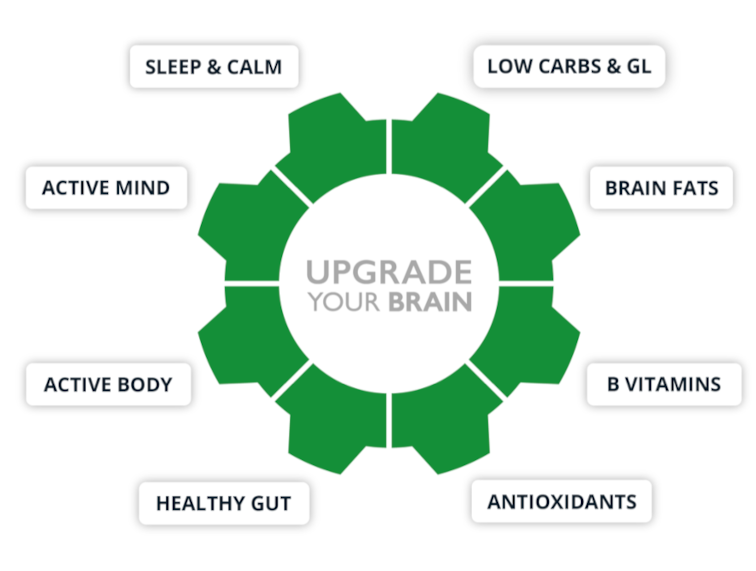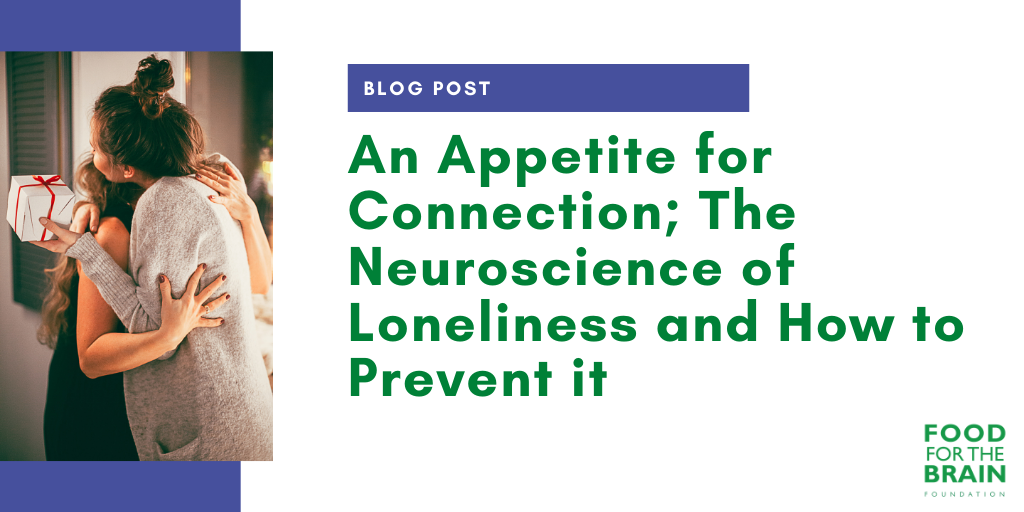One in three of us are addicted
According to the charity Action on Addiction, one in three of us are addicted to something, whether it be a substance such as caffeine, cocaine or alcohol, or whether it is in the grips of a particular habit that is preventing someone from living their lives in the way in which they’d like. Addiction emcompasses a wide range of behaviours and dependencies and can range from substance misuse to an addiction to gambling, shopping or food.
In the US, research carried out over a 12 month period, demonstrated that it was quite plausible that 47% of the U.S. adult population suffers from maladaptive signs of an addictive disorder. Despite the variations of addictions and the behaviours that are entailed, it is increasingly recognised that common underlying neurochemical imbalances can be found amongst all of them.
It’s down to an addiction to ‘feel-good’ neurochemicals
The addicted brain has essentially become dependent on a substance or habit to produce feel-good chemicals; neurotransmitters that are associated with feelings of reward, pleasure, satisfaction and relief. When neurotransmitter balance in the brain is out of kilter due to either genetics, chronic stress or a poor diet, for example, we are more susceptible to turning to substances such as alcohol or caffeine. These substances bring us back to balance, as our brain instinctively craves what we are deficient in. In order to reach a more comfortable state, vulnerable individuals attempt to continuously manipulate their neurobiological circuitry by repeatedly using substances such as a drug or engaging in a behaviour such as gambling. The challenge with this is that these are often substances or habits that can leave us in a vicious cycle of needing more to produce the same effect.
How we become addicted
A simple way of describing this is with caffeine, for example. A large majority of us struggle to start our day without our first cup of coffee in the morning. This is often related to having a poor circadian rhythm, whereby cortisol (a hormone that helps us wake up), which is normally supposed to peak in the morning, is abnormally low. Caffeine helps to stimulate the release of cortisol, adrenaline and the feel-good neurotransmitter dopamine. All together, the effect helps to enliven, motivate and stimulate us to get up and go. As our brain strives for balance after drinking a cup of coffee, or any other substance that’s mood-altering, the receptors to the neurotransmitters that have been stimulated, consequently dampen in order to avoid over-saturating our brain.
We become ‘reward deficient’
This means that we begin to build tolerance and therefore need increasing amounts of the chosen substance to produce the same rewarding effects. Eventually, this can lead us to what has been labelled as ‘reward deficient’, whereby our brain has become dependent on a substance or a habit to produce neurochemicals that lead to the ‘reward’ that it is seeking, which are in most cases feelings of pleasure, stimulation and satisfaction.
Why it’s so difficult to give up
Giving up an addiction can be incredibly difficult, as the dependency is hardwired into the limbic system, an area of the brain that is only concerned with meeting our basic needs and survival. In addiction, obtaining the substance or engaging in a behaviour is a matter of survival to this part of the brain. The symptoms caused by abstinence, when the addictive substance or habit is removed, can be debilitating and can include anxiety, fatigue, hypersensitivity to stress or pain, problems sleeping and extreme mood swings. These symptoms can continue for long periods of time and can therefore be a negative influence in relapse.
Nutrition, alongside lifestyle changes such as exercise, improved sleep patterns and relieving stress, can play an essential role in helping to support the brain back to health. By supporting the optimal functioning of brain cells and neural networks, as well as helping to stimulate the brain’s intrinsic regenerative functions, we can help to attenuate cravings and therefore prevent the chance of relapse.
Here are 4 dietary tools to support your brain:
1. Blood sugar rollercoaster = cravings = relapse
Eating a diet low in glycemic load can be an effective nutrition tool in reducing cravings and supporting brain and body health. This means eating foods that will have as little impact on blood sugar levels as possible, helping to keep them stabilised, which can have a positive impact on stress levels. This is due to the intimate relationship between blood sugar, cortisol and adrenaline – our stress hormones. When we eat foods high in glycemic load, sugar is released too quickly into our blood and insulin levels peak in order to rapidly remove the sugar from the blood into our cells. The result is that we are then left with lower than necessary blood sugar levels, which can lead to symptoms such as fatigue, mood swings, irritability, headaches and dizziness. Cortisol and adrenaline release are also stimulated, as they trigger the mobilisation of glucose from storage into the blood for use as quick energy. As you can see, these kinds of symptoms are not so different from abstinence symptoms, which can leave us vulnerable to relapse.
We also know that neurotransmitter production and transmission can only happen when there is a consistent supply of glucose to the brain, which is provided by the food that we eat. When blood sugar levels are rollercoastering due to a diet high in sugars, refined carbohydrates and processed foods, neurotransmitter transmission cannot happen optimally, leaving the brain deficient in inhibitory neurotransmitters that are essential for preventing anxiety, panic and irritability.
How to eat a low GL diet
In order to eat a low glycemic load diet, it is important to eat foods that will release sugar slowly from food. Switching from refined grains such as white bread and white rice to wholemeal is important, as well as avoiding processed foods such as biscuits, cakes, fizzy drinks, confectionary and even seemingly healthy foods such as fruit juices. These do not provide the body with sustainable sources of energy, as blood sugar levels rise and fall rapidly, leaving us susceptible to cravings.
Instead, replacing these foods with good sources of protein, fat and fibre with every meal will stabilise blood sugar levels and therefore help to avoid the symptoms associated with blood sugar crashes. Lean meats, oily fish, pulses and nuts and seeds and avocados are all examples of healthy sources of protein and fat.
It’s all about the prebiotics
We’ve all heard about probiotics, but what about prebiotics? The gut contains approximately a trillion bacteria of varying strains, which thrive on the fibre from the food that you eat, or in other words prebiotics. This helps keep them nourished and continue performing all the wonderful things that they do, one of which is producing neurochemicals that literally ‘speak’ to our brain and help keep your brain healthy.
Which foods provide good sources of probiotics?
Foods that are rich in fibre, such as wholemeal grains, root vegetables, pulses, green leafy vegetables, nuts and seeds, are all examples of foods that we can increase on to help nourish our gut bacteria and therefore our brain. In addition to supporting gut bacteria, these foods also help to stabilise blood sugar levels, so it’s a win-win conclusion.
How to increase prebiotics in the diet
Research shows that the average adult is not getting 30g of daily fibre, which is the minimum we need to be consuming for optimal health. Ideally we need more. A quick way of hitting that target is making your meals as colourful as possible with a wide range of plant foods, such as vegetables, legumes, nuts and seeds. Dedicating half of your plate to these foods in variation and rotating them as much as possible, will help you exceed the target of 30g of fibre per day.
3. The brain is dependent on essential fats
The essential fatty acid, omega 3, can be incredibly therapeutic in helping to optimise the function of our brain cells. Omega 3 is composed of two elements, EPA and DHA, which play an important role in regulating inflammatory responses, as well as nourishing the membrane of our cells. This is the part of our cells that is involved in receiving and transmitting neurotransmitter signals, as well as controlling nutrient intake and waste removal.
This is important when considering the process of recovery from an addiction, due to the long-term impact that habits such as alcoholism, smoking, food addictions etc. can have on the brain and its ability to maintain optimal neurotransmission. Quite often what can happen in the event of long-term addictions is both a lack of integrity in brain cells and upregulated inflammation, all of which can continue to perpetuate addictive habits and dependency on certain substances. Increasing omega 3 rich foods, will therefore help to provide the brain with the building blocks it needs to repair and thrive.
Maintaining a healthy ratio between omega 3 and 6
Both omega 3 and omega 6 are essential in the diet as we cannot manufacture them in our body. Our brain needs both for optimal functioning, however, they need to be in the right ratio.
Anthropological evidence of hunter-gatherer diets suggests that our ancestors evolved on a diet that was roughly 1:1, while the ratio today is actually 16:1 (omega 6 : omega 3). Our intake of omega 6 diets has increased by incredible amounts due to the industrialization of agriculture and the introduction of seed oils and grains in our diet.
Why is this a problem?
Omega 6 is pro-inflammatory. Whilst we need inflammation – it’s necessary for tissue repair and for fighting against infections – too much of it can cause problems. Especially for the brain. Increased neuroinflammation is the hallmark of poor mental health and symptoms of low mood, brain fog and anxiety. This is why it’s key to support the brain by increasing omega 3 rich foods and avoiding seed oils such as rapeseed and sunflower oil.
How to increase omega 3 foods
The best sources of omega 3 are small oily fish such as sardines, anchovies, mackerel and herring. Enjoying these sources of omega 3 foods in your diet 3-4 times a week helps to provide the brain and body with optimal levels of omega 3.
If you’re vegetarian, plant-based sources include walnuts, flaxseeds, chia seeds and hemp seeds. However, we recommend eating these foods on a daily basis as levels of omega 3 are much lower and only contain the precursor form of omega 3, which then needs to be converted in the body through an enzymatic process.
4. Consider amino acid therapy
Amino acids – the building blocks of protein – also provide the building blocks for neurotransmitters, as well as helping to support the cells in our brain and their energy-producing pathways. Depending on the substance or habit to which someone is addicted, supplementing with the right nutrients to address certain imbalances can be effective in improving abstinence symptoms, without causing side effects or dependency on medication.
Amino acids can help restore brain chemistry
Working with a professional
However, the process of figuring out the right combination of amino acids is a complicated one. This is why it is important to work with a specialist in this area that is able to assess the symptoms and analyse test results to build the right personalised nutrition and supplement programme for an individual. If you’re interested in working with a professional practitioner in this area that can guide you through a tailor-made nutritional programme to suit your needs, you can search online via BANT (British Association for Applied Nutrition and Nutritional Therapy).







